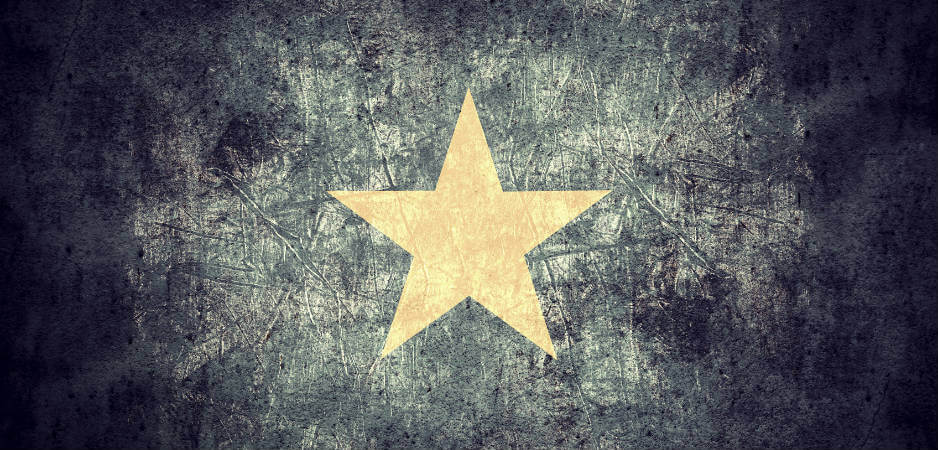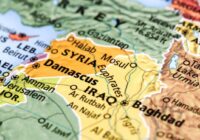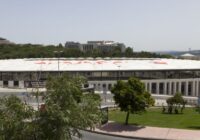For Somalia to achieve peace and democracy, state-building must be the new federal government’s cornerstone policy.
Somalia was supposed to have a new parliament in August, followed shortly thereafter by parliamentarians voting in a new president on September 10. This imperfect system has brought to power four new presidents since 2000.
The postponed elections put an extra burden on a fragile political, security and humanitarian situation. In addition to years of political instability and terrorism, the United Nations (UN) says that more than 5 million people are suffering food shortages, further exacerbating local conditions.
The initial revised electoral calendar expected a new parliament in office by October 20 and a presidential election on October 30, but the election commission has announced more delays. The commission now says that the federal parliament will be established by November 23 and a presidential election held on November 30.
The delays come as a major disappointment, and the UN’s special envoy to Somalia, Michael Keating, has warned that “the new extension does not create additional space for manipulation or disruption by spoilers.” The outgoing government’s interference in the election commission’s mandate and in the selection of delegates is a cause for concern. Opposition candidates are worried that government officials are manipulating the process and exploiting clan politics.
Hope and recovery
In 2012, when the first permanent Somali government in 22 years came to power in Mogadishu, it was welcomed with optimism and high hopes. Four years on, however, Somalia remains a divided and unstable country, one that is politically fragmented, institutionally weak and vulnerable to foreign exploitation, terrorism and human rights abuses by all parties to the conflict.
The federal government’s recent hosting of an Inter-Governmental Authority on Development (IGAD) heads of state summit in Mogadishu offered an opportunity for East African leaders to draw attention to the African Union Mission in Somalia’s (AMISOM) achievements, especially in light of the European Union’s 20% AMISOM funding cut. The summit also accorded a symbolic moment for a president besieged by his political rivals.
But the summit’s short-lived symbolic value was punctuated by the continuing wave of militant attacks, including a September 18 bombing outside the Ministry of Defense in Mogadishu, killing Somali army division commander General Mohamed Jimale Gobale. On that same day, the militants were blamed for an assassination in the city of Galkayo and for overrunning a military post in Gedo region, near the Kenyan border.
The attacks underscored the insurgents’ capacity to perpetrate horrific violence with impunity, and exposed the government’s security weaknesses and the lack of cooperation between federal and state institutions.
Somalia: Weak institutions, indirect elections
The path to indirect elections came at the conclusion of a marathon of meetings and talks between federal and state leaders, grouped under the National Leadership Forum (NLF). Hassan Sheikh Mohamud, whose presidential term ended on September 10 and holds power in a caretaker role disputed by opposition leaders, has claimed that the 2016 election will be a “step closer to universal suffrage.”
The outgoing president is overstretching. An “electoral college” of nearly 15,000 delegates, who will elect the 275 members of parliament (MP) of the lower house, is no substitute for a general election where all eligible citizens vote in a nation of 10 million people. The anticipated process, however, encourages public participation in comparison to the limitations of the 2012 election, when 135 traditional elders handpicked parliamentarians. Somali leaders have also committed to a 30% quota for female legislators. If achieved, it will become a milestone in a traditionally male-dominated political landscape.
President Mohamud’s exaggerated justification may also be interpreted as a diversion tactic to draw attention away from his administration’s shortcomings: in the constitutional review and federalization process, social reconciliation, economic and institutional reforms, rebuilding national forces and holding timely elections.
Leadership failure
There is no question that the federal government’s institutional weakness and leadership failure have undermined Somalia’s democratic dreams. Lacking from the country’s transition to democracy is political commitment and structural reforms that prioritize state-building, social and political cohesion, and economic revitalization.
 Fair Observer provides you deep and diverse insights for free. Remember that we still have to pay for servers, website maintenance and much more. So, donate now to keep us free, fair and independent.
Fair Observer provides you deep and diverse insights for free. Remember that we still have to pay for servers, website maintenance and much more. So, donate now to keep us free, fair and independent.
While the UN’s Michael Keating says that the 2016 election will be “much more inclusive” than past elections, the reality is that the political environment is characterized more by political violence and fragmentation, and less by inclusive politics and democratic practices.
The outgoing president’s re-election bid is challenged by a host of former leaders and political newcomers, including one ex-president and two ex-prime ministers, the former president of Puntland state, ex-cabinet ministers, the former ambassador to Kenya, Mogadishu’s ex-mayor and the only female presidential candidate.
Opposition presidential candidates, most of whom are organized under the Coalition for Change in Mogadishu, have challenged Mohamud’s extended stay in office and demanded that he transfer power to the speaker of federal parliament, Mohamed Osman Jawari. Abdirahman Abdullahi Baadiyow, the 2012 presidential candidate, scholar and member of the Coalition for Change, said in an emailed response: “The incumbent regime has failed to deliver all of its Six-Pillar Policy and is adamant to come back to power using state resources, unprecedented corruption and vote-buying.”
Baadiyow also indicated that the outgoing president was “blocking all avenues of dialogue” with opposition candidates.
Allegations of power abuse, corruption and divisive policies have marred the outgoing president’s term. Under President Mohamud, opponents say, security conditions deteriorated, social divisions widened, the economy nearly collapsed, and political and institutional reforms lagged.
But in April, the outgoing leader told the UN Security Council that “Somalia has made extraordinary progress” in peace and governance, while claiming economic reforms with an annual growth of 3.7%.
Continuing challenges in Somalia
No matter who is elected in Somalia, the next government faces continuing challenges in peace, institution-building and economic reforms. The International Monetary Fund affirmed that “weak institutional capacity, complex clan politics, and a challenging security situation have complicated the country’s economic reconstruction.”
Political stability and economic recovery can only be assured once Somalia has peace and reconciliation. With a stable government, the country can benefit from its wealth of natural resources. Political will, enhanced institutional capacity and federal-state cooperation can build on security gains, initiate an economic transformation, and address the delicate politics of grievance and identity that sit at the heart of a prolonged conflict.
An election alone cannot reverse decades of turmoil and economic ruin. There is hope that Somalia is on the path to progress, and renewed optimism that it can elect new leadership that brings change. For Somalia to achieve peace and democracy, state-building must be the new federal government’s cornerstone policy.
The views expressed in this article are the author’s own and do not necessarily reflect Fair Observer’s editorial policy.
Photo Credit: Miro Novak
Support Fair Observer
We rely on your support for our independence, diversity and quality.
For more than 10 years, Fair Observer has been free, fair and independent. No billionaire owns us, no advertisers control us. We are a reader-supported nonprofit. Unlike many other publications, we keep our content free for readers regardless of where they live or whether they can afford to pay. We have no paywalls and no ads.
In the post-truth era of fake news, echo chambers and filter bubbles, we publish a plurality of perspectives from around the world. Anyone can publish with us, but everyone goes through a rigorous editorial process. So, you get fact-checked, well-reasoned content instead of noise.
We publish 2,500+ voices from 90+ countries. We also conduct education and training programs
on subjects ranging from digital media and journalism to writing and critical thinking. This
doesn’t come cheap. Servers, editors, trainers and web developers cost
money.
Please consider supporting us on a regular basis as a recurring donor or a
sustaining member.
Will you support FO’s journalism?
We rely on your support for our independence, diversity and quality.






